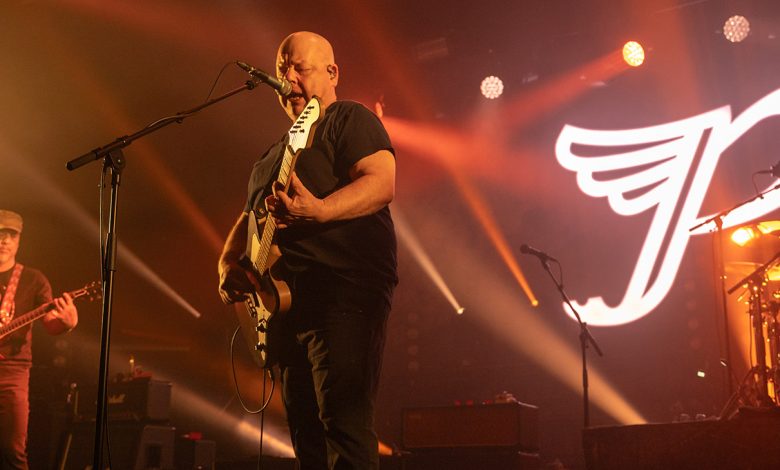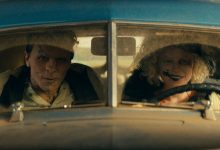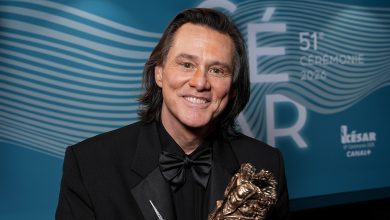The Band That Drew the Blueprint for Alternative Rock

Since breaking in 1988 with their debut LP Surfer Rosa, Pixies has cast a Godzilla-sized shadow on alternative music. Case in point: the Rosa single “Where Is My Mind?” currently boasts over 1 billion Spotify streams, embraced by Gen Z as the embodiment of a certain indie vibe of yore.
Pixies followed that with “Doolittle” in 1989, a no-skips groundbreaker which solidified their sound — a pastiche of punk, surfer rock and general sci-fi weirdness. They also introduced the concept of loud/soft songwriting, which Nirvana took and ran with to massive crossover success on 1991’s Nevermind. After writing “Smells Like Teen Spirit,” Kurt Cobain noted how much it sounded like a Pixies song and fretted, “They’re going to nail us.”
The band has endured its ups and downs in the ensuing years, most notably with an abrupt breakup in 1993; a triumphant Coachella comeback set in 2004 (the reunion stuck and Pixies still tours and releases new music, most recently 2024’s The Night the Zombies Came); and the exit of bassist/vocalist Kim Deal, who after years of creative clashes quit for good in 2013 to focus on her own group, The Breeders.
As the band embarks on the U.S. leg of a world tour — they start in Las Vegas on Friday before a run of shows at the Hollywood Palladium beginning June 20 — its visionary frontman Black Francis (aka Charles Thompson IV) — sat down with The Hollywood Reporter to shed a little light on their mythos.
To this day, your albums continue to intrigue me. There’s something a little scary about them: the imagery on the covers, the shrieking, the lyrics, the sound. It was a bit like a mystery. “Who are these people? What are they singing about?” So what were you trying to accomplish artistically?
Just something that held together. We wanted to smack of authenticity. In the 1980s, in the pop mainstream end of things, there were all these metal hair bands and stuff in pop, a lot of it. We didn’t really care for it. We didn’t have a message, but we knew we didn’t like that stuff. Some of the underground punk stuff we liked. We didn’t understand it, but we liked it. I think the presumption of freedom and the ability to express oneself without compromise, we have always moved in that way.
How did the music industry respond to that?
We never signed a contract that didn’t give us all absolute control. We just presumed that everyone gets to do what you want. I’m not going to sit around and let someone else decide what the name of my fucking record’s going to be or what songs I’m going to do or whatever. I mean, did the Beatles have to do that? Whatever. You know what I mean? I have a very simplistic, almost childlike kind of view of it all.
We could have been more commercial. But really we’re kind of more eclectic than that. And if we have a song that’s treated in a very sugar-sweet pop way, it’s part of what we allow into our Pixie vocabulary.
“Here Comes Your Man” could be a Beach Boys song, really. But then you have these darker, almost death metal moments.
I understand if some of my peers might feel like we can’t make up our minds about who we are. I think that the blueprint is, I’ve already mentioned them once, The Beatles. There’s quite a wide range they allowed themselves, vocabulary-wise. One of those things would be some sort of understanding or feeling for minimalism. Even just a line that’s repeated over and over. “Why don’t we do it in the road? No one will be watching us. Why don’t we do it in the road?”
Not to keep harping on the shrieks, but did you have to teach yourself how to make those noises? And did it do any damage to your vocals?
I don’t think so. I like to give credit to my neighbor, a guy named Bob from Thailand. He had a band back in Thailand back in the early 1970s and then immigrated to L.A. Bob was bald, but he had this Beatles wig that he wore most of the time. And he also had a flower shop. I used to deliver flowers for him. He had a little studio in the back. He said, “Chuck, come on. Bring your Beatles book over, record something.” I was about 13. He said, “Let’s do ‘Oh! Darling.’” That Paul McCartney, R&B-kind-of bellowing vocal.
So we started to record it, he’s got a Beatles wig on, and he’s like, “How do I explain it to this kid?” And he’s like, “Come on! You hate that bitch!” He’s talking from a perspective that’s just way beyond where I was at in the world, but I knew it was adult or whatever, thinking, “You hate that bitch.” I tried to give him what he wanted. He was a director and I wasn’t going to pretend that I didn’t understand what he was talking about. And so I just emoted in some sort of way that was a little bit primal, a little bit Yoko Ono scream therapy, kind of weird nervousness and adrenaline. He was trying to say, “Get out of this timid space, step up to the microphone, my man, and you’re going to sing this song. You better at least sing it as good as fucking Paul McCartney.”
And that’s where the screams on “Tame” came from?
I did correct my voice with an opera guy for quite a few years in L.A. and he taught me a bunch of stuff. That helped save my voice. It’s just a combination of things. I think it’s how you’re physically built and what you instinctually do, plus what you can learn on top of that. It’s a weird combination of things. I can holler, you know what I mean? It’s kind of a great thing.
I saw you in person for your 2004 Coachella reunion performance, your first concert together since breaking up in 1993. That was a big year. Radiohead was there, as well, and they cited you guys as a big influence. Have you been technically together since then?
2004 we got back together and we’ve been back together ever since. Of course, Kim Deal left around 2013, and there have been several bass players since then.
Who’s the current bassist?
The current is an English woman named Emma Richardson. She’s a painter who has done a lot of rock touring and recording, but had kind of retired from music. She had been recommended by two of the producers that we work with. On our new record, she’s the choral ode, the yin and yang, of the Pixies. I like having both a feminine voice and masculine voice.
How is your relationship with Kim Deal now? Would she come back out for a set — or more?
I mean, she might, but I think she’s revisited Pixies already and stopped while she thought it was ahead, before we delved into this new musical era. I don’t know how she would feel about singing with us again. She’d be welcome to, of course, but it’s not what she wants to do. She does what she wants to do, and so she wants to do her thing. She wants to lead a band, she wants to be the front person. We can’t turn every career high into a Christmas-card selfie moment. It’s kind of exhausting. The whole need to take a selfie for people in general…
You’ve mentioned L.A. a few times. I love your solo song “Los Angeles.” Even though it’s not about this Los Angeles, it’s about the Los Ángeles in Chile. But that’s why I love it. “Not the one in Los Angeles.” I love that lyric. I think of you as a Boston band. I don’t think of you as an L.A. band, but it sounds like you’ve spent time here.
Yes, at different times of my life, beginning from when I was a baby. There there was a period when I was maybe a young teenager. There was a period when I was an adult, for a good 16 years or so. I haven’t lived there now for a good 20 years. But yeah, there are these big chunks of time where I lived in L.A.
Were you here when Pixies had broken and become a big deal?
As soon as I could afford a car, my girlfriend wanted to try out comedy or acting and she was like, I want to move to L.A. And I was like, “Fuck it. I just spent most of my high school years there, it fucking sucks. I don’t want to go back there again.” But I was like, “All right, whatever.” So we went and then the rest of the Pixies one by one soon followed. And it was easy to do even if you didn’t commit to living there, because there’s all that kind of culture of the month-to-month apartments that people in the entertainment business lived at. There used to be one in Burbank called Oakwood. I don’t know if it’s still there.
I think we’ve all had our fair share of nightmare drug experiences at month-to-month corporate apartments in fucking the Hollywood Hills while making a record in 1991 or whatever. So there was a big culture of those kinds of places that you could pay by the week. There was one on Franklin Avenue called the Franklin Avenue Suites, and you could get a good apartment there for a week, and that was kind of fun.
There’s something so cinematic about your music and the lyrics and the sci-fi. It seemed like video would have been like the logical place for Pixies to go. But you resisted music videos.
We made several, and it was a major pain in the ass for the records companies involved. It was still the early 1990s, so there was this kind of big, corporate record company mentality where they were like, “If we spend enough money and if the production value is high enough, MTV might put your song on heavy rotation and that will change your fucking world.” That was the attitude. And then we would always throw some weird shit into it. The first one we did was they wanted it for this song, “Dig for Fire.”
So we got to be with real artsy, British guys, but we also wanted to do the song “Allison,” this real short song. And they said, “We’ll do it as a medley.” We said, “And then the ‘Allison’ part of it, we want to wear wireless microphones and wireless guitars and we want to run around in a football stadium. Could you give me some more cannabis, please?’” Everyone was so fucking desperate to get on MTV. They were like, “Yeah, whatever, man, here’s your fucking money for your crazy ideas.”
I’m just thinking how Nirvana came right after you. “Smells like Teen Spirit.” They’re not what you would think of a video band, but that video was huge. The cheerleaders and all that.
They probably embraced it and whoever made that video embraced it in a cinematic way that had some raw edge to it and it goes so well with the raw edge of that track. It’s catchy. It’s edgy. The photography is great. It’s got some harsh white lights in it. It’s got a certain flavor that feels basement.
Like, David Fincher should have done a Pixies video. Did you ever meet Kurt Cobain?
No.
But they cited you as an influence, I know that. Pixies comes up again and again in his diaries.
Yeah. I never met him. I’m guessing we were both too busy. My understanding is that he was more or less kind of a shy person.
Well, thanks so much for this. It was huge treat to get to interview you. I’m going to watch some music videos now.
I must recommend a video. My favorite video is “My Life” by Talk Talk. That video is so simple and pure in its montage with just a little bit of humor in it. And it’s very relaxed, almost like they didn’t even put that much effort into it. I’ve always felt like, “Wow, they did a really good job with that without trying too hard to impress me.”
Source: Hollywoodreporter
HiCelebNews online magazine publishes interesting content every day in the music section of the entertainment category. Follow us to read the latest news.
Related Posts
- ‘Starwalker’ Director Talks Defying Queer, Trans Rights Backlash With “Joy in Our Rebellion”
- Tate Donovan Is Grateful for Recent O.C. Nostalgia, Though Still Remembers an 'Embarrassing' Moment He Had on Set (Exclusive)
- Japan Cuts to Open With Yasuhiro Aoki’s ‘ChaO,’ Festival’s 2025 Lineup Unveiled
- Witnesses Reveal New Details About Influencer Maria Eftimova's Death After 65-Foot Fall on Mountain
- Harvey Weinstein Gets Mistrial on Rape Charge After Threats to Jury Foreperson





